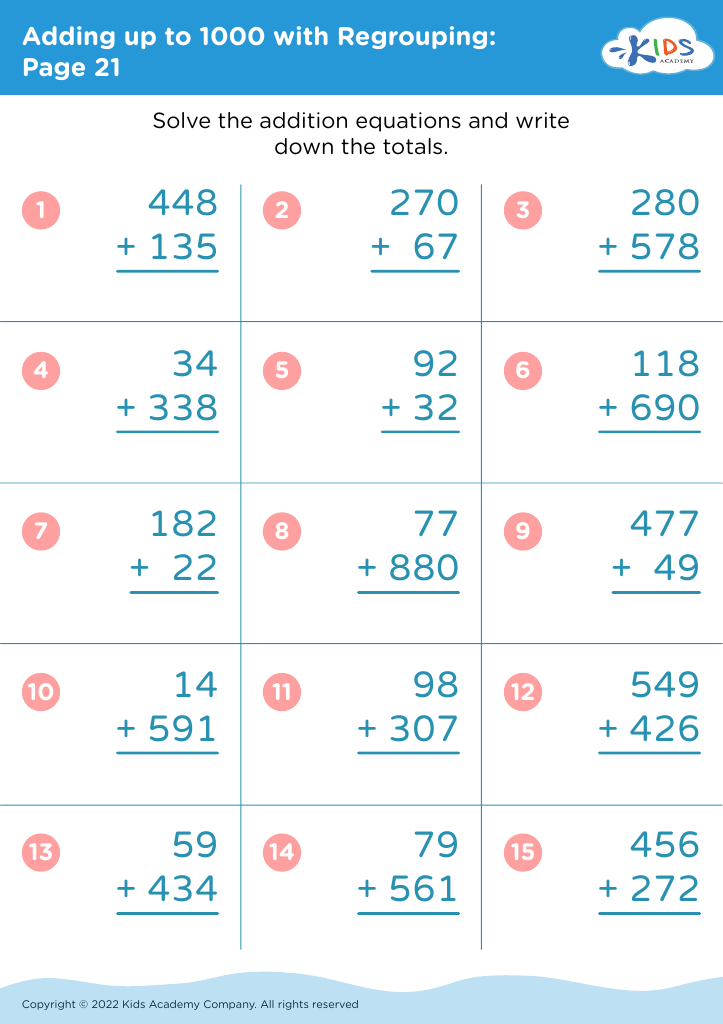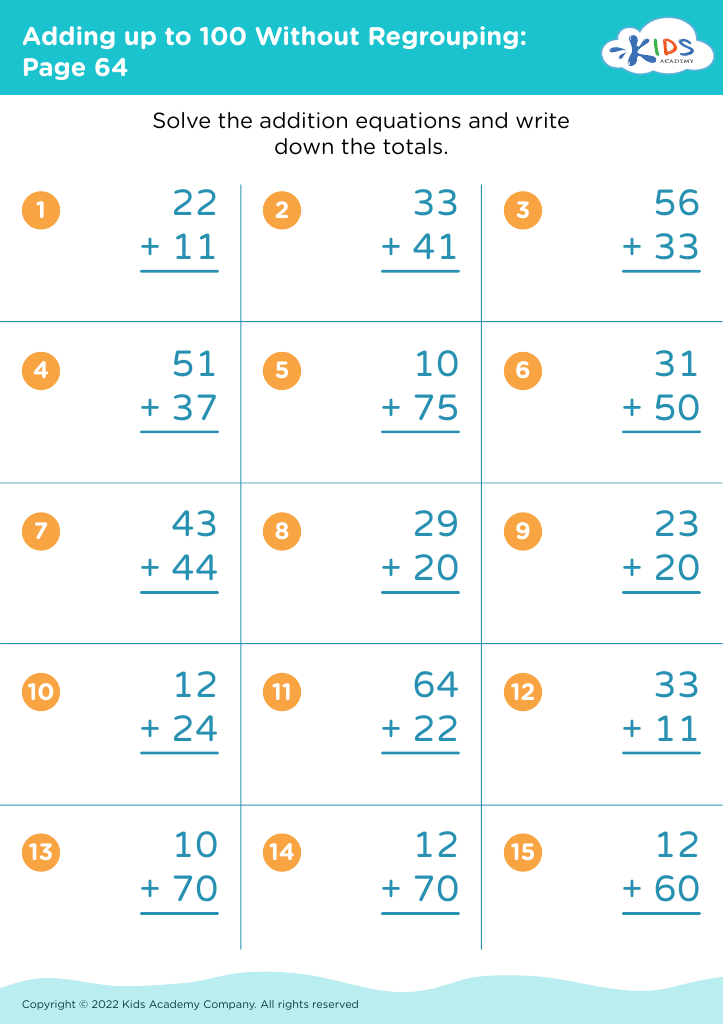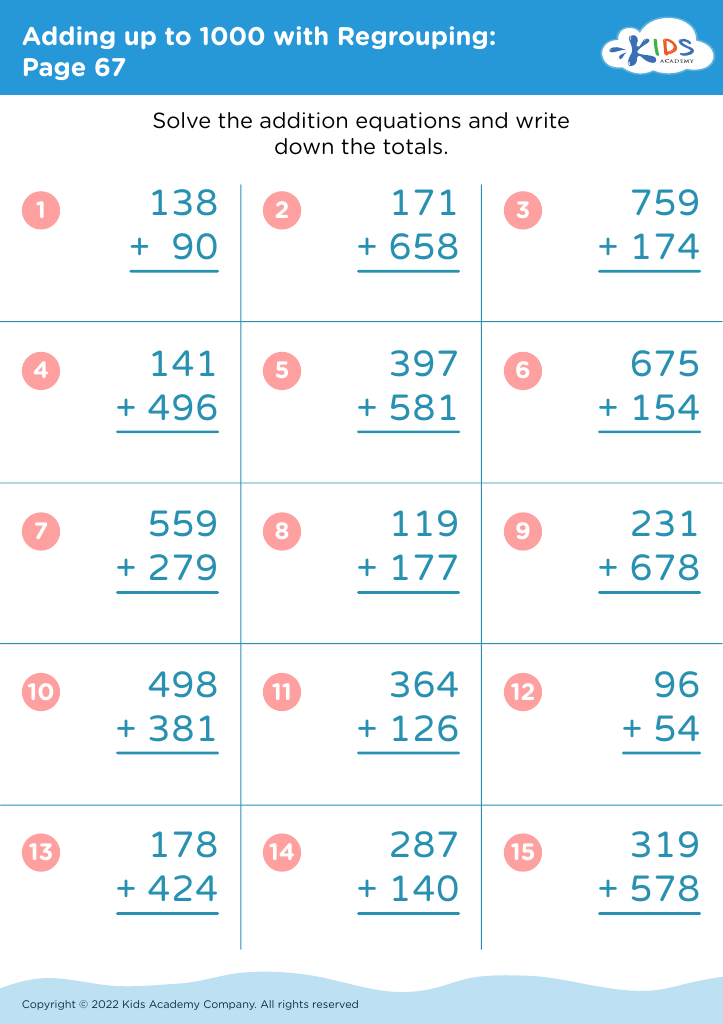Number identification Addition & Subtraction Worksheets for 8-Year-Olds
4 filtered results
-
From - To
Our carefully crafted Number Identification Addition & Subtraction Worksheets are perfect for 8-year-olds, helping them master essential math skills in a fun and engaging way. These worksheets focus on identifying numbers, enhancing addition and subtraction abilities while building confidence in young learners. Each worksheet offers varied exercises that target critical thinking and problem-solving skills. Designed by education professionals, these activities align with standard curriculum requirements, providing structured practice to reinforce classroom learning. Ideal for both classroom and home use, our printable resources transform learning into an enjoyable experience, ensuring comprehensive number identification and arithmetic skill development. Start your child’s journey toward math mastery today!
Parents and teachers should prioritize number identification, addition, and subtraction for 8-year-olds as these skills form the foundational pillars of arithmetic and everyday life. Number identification ensures children can recognize and understand numerical symbols and values, a precursor to advanced mathematical concepts. At this age, children transition from simple counting to performing basic arithmetic operations like addition and subtraction, essential for problem-solving and logical reasoning.
Grasping these skills aids in cognitive development, encouraging strategic thinking and a methodical approach. Children who master arithmetic typically exhibit better performance in other academic areas due to enhanced focus and analytical capabilities. Importantly, these math skills are essential for practical scenarios such as shopping, time management, and measuring.
Moreover, early math proficiency correlates with later academic success, promoting higher self-esteem and motivation in students. When parents and teachers invest time in nurturing these competencies, they help inculcate a lifelong appreciation for learning and problem-solving. Interactive teaching methods, engaging activities, and real-life applications can make learning these skills enjoyable and meaningful. In brief, focusing on number identification, addition, and subtraction equips children with critical skills for academic achievement and everyday competence.
























